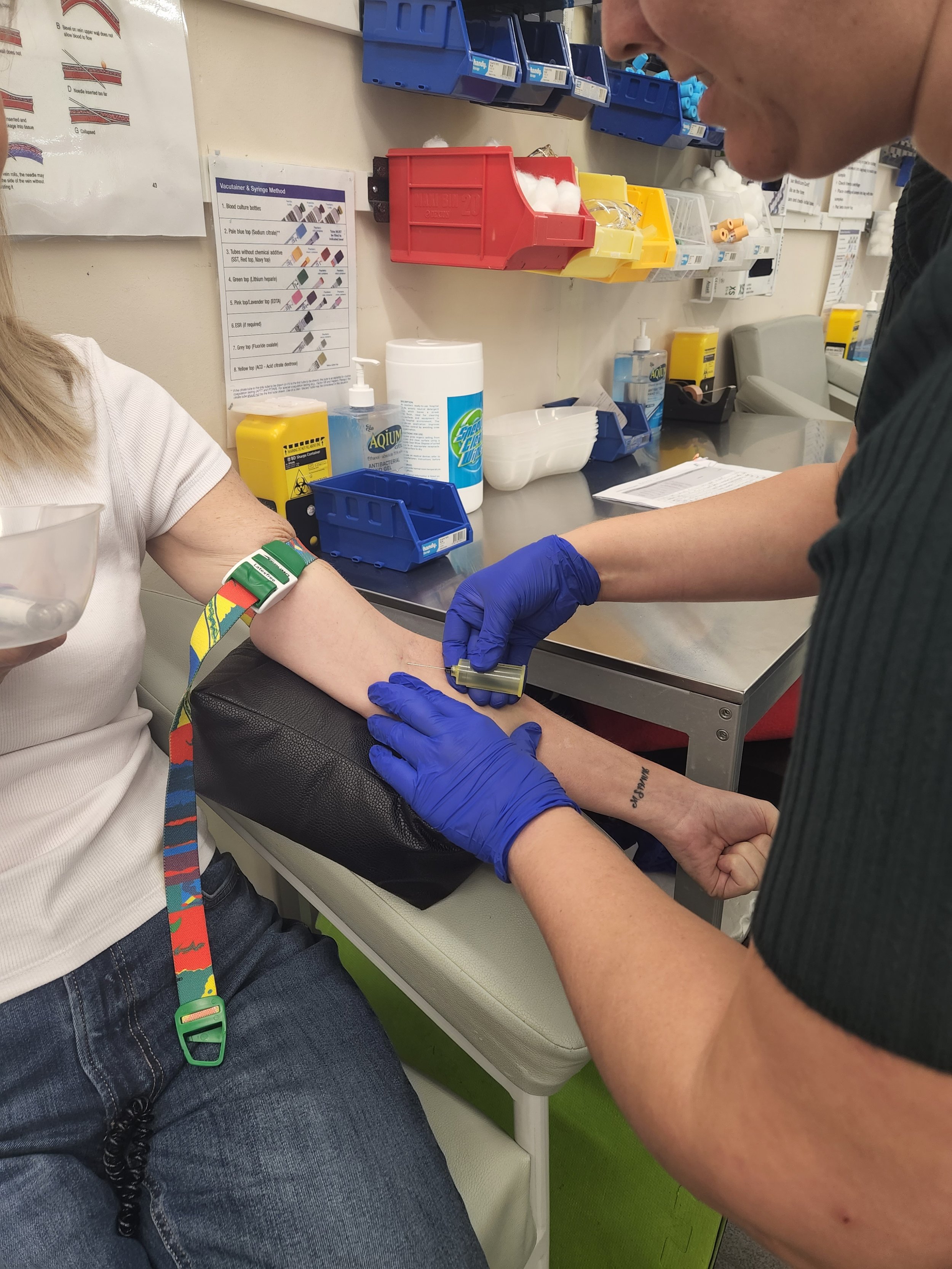During a blood test, a needle is inserted through the skin to reach a vein. While it’s a safe procedure, it is common for patients to bruise at the site of the needle puncture. This is called a haematoma, a small collection of blood outside of a blood vessel. The bruise itself is discoloration from the blood trapped under the skin’s surface.
Bruising is more likely if the collection is difficult, if pressure is not maintained on the site for a minute or so, if the patient is taking anti-clotting medicines, if the patient is an elderly person with fragile veins, or if the patient exercises their arm soon after the blood test – such as by lifting heavy shopping bags or going to the gym.
While bruising is unsightly, it is not dangerous and will slowly disappear over a few days or weeks, depending on how extensive it is.
While students are learning how to perform venous blood collections, it is important to show patience and empathy. Just like most tasks, practice makes perfect! Students might need to reposition the needle after the initial placement or may have inserted the needle too far beyond the vein. Some veins are harder to find which makes it more likely blood vessels will be damaged. We train our students to take their time to locate the best vein on a patient, but sometimes they aren’t successful on the first try.
Pathology collectors (and phlebotomists) can do their patients a service by explaining the importance of applying pressure to the venepuncture site with a cotton pad after the blood draw (as this helps avoid bruising). Bruising after a blood draw is a common occurrence, and while bruising is normal, some patients tend to bruise more easily than others. It is important to know how to prevent bruising after a blood draw and be aware of when it becomes a cause for concern.
If the thought of needles doesn’t scare you,
a career in pathology collection could be for you!
If you’re ready to learn more about phlebotomy and all things specimen collection, the HLT37215 Certificate III in Pathology Collection is available at LTT’s training centres in Brisbane, Melbourne, Perth and Sydney.
Please don’t hesitate to contact us with any questions.


